Sweet Romance: Todd Almond on turning ’90s alt-rock into a gay love story
With "Girlfriend," Todd Almond has taken an album from his youth and turned it into a magnificent show about young gay love

When Todd Almond first began writing a play about two teenage boys in Nebraska who fall in love to the tunes of Matthew Sweet, he had no idea how he would obtain permission to use the artist’s songs for the show. It was over a decade ago, and he had never met the rocker.
But Almond was certain he wanted Sweet’s album Girlfriend, released in 1991, to serve as the soundtrack for the blossoming friendship between the play’s two lead characters, high school seniors Will and Mike. Almond also intimately knew the feelings of alienation and confusion that engulf the pair as they struggle in the play, also titled Girlfriend, with their sexuality and impending gay adulthood.
“Sometimes you can feel alone in the world and I definitely felt alone in the world in Nebraska,” says Almond, who grew up gay among the farms and ranches of the state’s western plains. “I had a wonderful friend and a wonderful family, but [like] all teenagers, you feel very alone. Often times, I felt like that was a burden for myself to carry, and sometimes I felt like it was a special gift.”
Almond channeled his gifts into a passion for the performing arts, which led him to the esteemed Cincinnati Conservatory of Music to study classical music. Still, he wasn’t sure if he’d chosen the right path. “I’m always in that struggle,” he says. “Am I more interested in theater or am I more interested in music?” Eventually, his love for the theater won out, and he turned to acting, performing, and writing for the stage.
He’s since embarked on a prolific creative career, adapting Homer’s The Odyssey for New York’s Public Theater, composing a score for Shakespeare at San Diego’s Old Globe, and premiering several of his own original works, including Girlfriend, now running at Signature Theatre.
In addition to writing and composing, Almond also continues to act, as well as perform in concert with artists from Broadway faves Andrew Rannells and Laura Benanti, to Courtney Love. Yet, as his life and career brought him to his current home in New York, he never forgot Girlfriend, and what Sweet’s breakthrough record meant to him as a gay teen out on those wide open plains.
“In 1991 or ’92, in Alliance, Nebraska, it was so not cool to be gay,” Almond says. “You feel different and outside, which feels bad, but it also feels great, because you have your own thing. I felt that way with Girlfriend, the album. I thought I found this thing that is so cool and nobody else knows about it. I felt like the cool kids in other places knew about this album, but the kids where I was from didn’t. So, not only did I love it, but it felt like it was mine.”

Matthew Sweet himself recognizes that those songs have found a deep, emotional home in the hearts of some of his fans. “I always was really thankful that it had that personal thing that people kind of attached to it,” he says. Although Sweet has created volumes of eclectic pop-rock in the ensuing years, and released several other albums, including his latest, Tomorrow’s Daughter, the artist has seen firsthand how Girlfriend has endured in its own special way.
“When we were touring the 20th anniversary a few years ago, we would play the whole album, and it was amazing how much reverence people had for it, and how much they cared, and how happy they were,” he says. “The people that were fans of it were young, and at a time in their lives where they used it to represent their own relationships that were starting, or ending.”
Almond makes poignant use of Girlfriend‘s tracks — sung in the show by Will and Mike, backed by an all-female rock band — to voice the teens’ desire to be seen, heard, and loved. Sweet, for his part, wholeheartedly approves.
“I think of my songs, and especially on that record, of being so personal, me and you kind of songs, that it makes me pleased that people have taken it that way,” Sweet says. “And it’s the same way it makes me feel about the musical, which is that I’m so glad the songs can be used to express some feelings, you know?”
And just as Sweet ultimately would entrust his songs to Almond to create his version of Girlfriend, the playwright placed his faith in Signature Theater and director Matt Gardiner to mount their production without his input.
As it turns out, the pair of actors that Gardiner cast as Will and Mike — Jimmy Mavrikes and Lukas James Miller — brought their own unique tastes and experiences to reimagining Sweet’s love songs. “Definitely music was always there and a common bond between myself and friends that helped me through tough times, though never a specific album,” says Miller, who plays Mike.
But Miller and his character share other similarities. “I grew up in Nelson County, Virginia, which is a really small town, and I grew up in the middle of the woods, very secluded from population of any kind,” he says. “I grew up without internet and stuff like that…. I remember my first CD player, and that was the most exciting thing — getting on the bus in the morning and knowing that I had 40 minutes to listen to a CD.”
Mavrikes, a 2018 Helen Hayes Award nominee for his lead turn in Constellation’s production of The Wild Party, acknowledges that music has helped him through some difficult times. “I was doing Pirates of Penzance during a really bad breakup, and the cast, and just being able to sing and do what I love, was really helpful.”
However, it’s his friends whom Mavrikes credits with helping him overcome a particularly difficult coming out process. In much the same way, the boys’ friendship in the play helps Mike overcome his coming out conflict with his unaccepting dad.
For Mike, things do get better. But coming out still isn’t easy much of the time, and anti-LGBTQ sentiment and policies constantly threaten safety and opportunities for too many queer people. An outspoken ally, Sweet has a thoughtful reminder for any fans of the album Girlfriend who might not appreciate, or understand, the singer’s decision to lend his songs to a gay love story.
“Love is love,” he says. “I would hope no fan of mine would be that way about it. But, of course, if they were, I would encourage them to be open-minded and to understand that love is love, whoever it is, whatever sex it is. The songs celebrate that.”
Almond concurs, admitting that he’s still learning from Will and Mike. “Every love story is unique, yet every love story is universal,” he says. “We all can see ourselves in those boys, even if we’re not from that part of the world, even if we’re not that age, even if we’re not gay. I feel like there’s something in the story of those two boys, and just watching their emotional response to each other that we all relate to.”

METRO WEEKLY: You maintain a really busy schedule as a performer. When do you write?
TODD ALMOND: Kind of all the time. Sometimes I’ll just schedule it. I’ll look at my calendar and say, okay, next Tuesday through Thursday I’m free, so I’m going to write and work on this project. I mean, you can’t account for inspiration, but I think I can kind of wrestle it down sometimes and be like, you’re gonna work on this and you’re gonna be inspired Tuesday at 4 o’clock. And it’s going to work. And sometimes it does.
MW: Do you have a triggering mechanism?
ALMOND: Fear of disappointing people.
MW: That’s a good one.
ALMOND: Yeah. But also, one forgets that things take such a long time to write and get on their feet. I have a piece that, if it happens, will happen in the next year and a half, and it’s gonna seem like, wow, when did Todd wrote this new piece? But I’ve been working on it with my friend for like four years. You work very slowly, at least I do, on many things. It’s birthed suddenly and it’s like, how did you get all this writing done, but, it’s actually been very slow and taken many, many years.
MW: There are a lot of people who are like, “Oh, I wrote this in two weeks.”
ALMOND: Yeah. I hate those people.
MW: You’re about to play again in Hedwig and the Angry Inch.
ALMOND: The third time for the same theater company [Cincinnati’s Ensemble Theatre]. We did it in 2001, 2003, and now, we’re doing it again, fifteen years later.
MW: How do you rediscover Hedwig?
ALMOND: I have emotions slowly descending on me over the last couple of months. One thing I have done to rediscover Hedwig is get to the gym and try to get my butt back into shape, which has been really rewarding. I had a trainer helping me out. Muscle memory is such an amazing thing. I picked up the script a couple months ago and just started reading it and saying it out loud. I think 15 years of life and 15 years of just history we’ve all experienced has been a remarkable tool. I’m reading the play differently now. It’s resonating in a different way.
MW: You’ve been performing in concert with Andrew Rannells and Laura Benanti. Does Benanti’s amazing impression of Melania Trump appear onstage?
ALMOND: We make a couple of references to it and audiences always go crazy. They really love that. She doesn’t do the impression in our show, but we changed the lyrics to a Kander and Ebb song and put a Melania reference in. People don’t see it coming and they really go crazy. Laura is the funniest person I’ve ever known.
MW: How did the collaboration with Courtney Love come about for your 2015 show Kansas City Choir Boy?
ALMOND: The Prototype Opera festival had scheduled Kansas City Choir Boy. My friend, Kevin Newberry, the director, and I had been working on it for a while, and it’s a love story, right? So I played the husband and we needed whoever was playing the wife to be this kind of person that you look at and you say, you are destined for something so much greater than most of the rest of us. You need to look at this person and just feel she’s a goddess, and she’s famous. Even though this story takes place in a small town in Kansas City. We were really trying to figure out who that could be, and I had, about a year leading up to that, become friends with Courtney through my husband, who’s an agent and is representing Courtney on some projects, and Courtney and I just got to know each other socially and just really hit it off. I’ve been such a fan since I was a teenager and so I said to Kevin one day, what if Courtney played the part? We laughed for a second, thinking, oh, how impossible that would be. But then we were like wait, what if she did? And then the whole piece just snapped into place in our brains and we were like right, Courtney Love is the exact right person.
I sheepishly asked her and sent her some of the music. She really responded to it. She’s curious about theater. It was the right stakes, because it was a short run in New York and a small theater, an Opera Festival. It was such a brief run. It wasn’t like a three-year commitment to a Broadway production. It just fit all of the things that she was interested in. She was like, “I’ll do it if I can smoke in your apartment while we rehearse.” I didn’t care. You’re Courtney Love, of course you can smoke in my apartment!
We would be up all night. She came and stayed with us for this long stretch and we would just hang out in my apartment until three in the morning, singing these songs and reworking them or rethinking them and she’s like, “Let’s go from the top again,” and we’d sing the whole show. She’s smoking cigarettes and we’re ordering in food. It was really great. We did New York, LA, Boston and Miami. We would do it again, it just has to be the right circumstances.

MW: Your work seems to live at the crossroads of musical theater and rock and roll. Which love comes first?
ALMOND: I’ve always been in that internal struggle. Even when I went to college in Cincinnati, I applied to the musical theater department and the classical music department. I got accepted into both, which was a huge shock to me, and I wrestled what what do I want to do? I chose classical music. Music is just a thing that gets me going. There’s a line in Girlfriend where I feel like it’s just me talking for a second, when Mike says, “Music is the only thing that keeps me…it keeps me.” I see it like that. Even then, when I was in college, I’m studying classical music but I wasn’t totally satisfied, so I would go to the theater department and say, “Can I be involved in your plays, and I want to write a play for your actors, but I also want to act in your plays.” I’m not ever gonna be a touring musician and I’m not ever gonna write a classic musical theater piece, because I just live in that world in between. I like it. I feel like I’ve staked out my little territory on the border.
MW: The script for Girlfriend captures that age when summer stretches out and an album can be played on repeat day after day. Was Girlfriend such an album for you?
ALMOND: I had many, but Girlfriend absolutely was on repeat at that time in my life. Now I listen to that album and people will say, “Oh I’m seeing your show Girlfriend, I didn’t know that album,” or, “I haven’t heard that album.” I’m like, “Because you weren’t cool.” [Laughs.] I don’t know, it was so special. There’s a secret club of people who love and know that album and I feel like I’m a member of that club.
MW: In the world of the show, Mike and Will are the only two characters we meet. Did you always conceive of it being just the two of them?
ALMOND: I did. I tend to write scenes with two people. Generally, I’m interested in relationships between two people. I’m never gonna write a great, big war epic, where there are dozens of characters — I don’t know how to do that. I also liked that when you’re in love, the whole world just goes away and the only other person is that person.
It also helped me get rid of the guys [in the story] who are not nice to Will. I thought, I don’t want to see them onstage. I don’t care about those guys any more. Fuck them. I don’t want to give them any time onstage. Just having the two of them solved all of those problems.
MW: It’s an innocent romance — one might even say chaste. How did you measure the pacing of their courtship?
ALMOND: I wanted the entire plot to be them inching together. A scene has to have a shape and an arrival and something has to happen, but I thought, if this is truly the event of the entire play — these two boys fall in love over the course of a summer — if that’s the whole plot, then I have to break it down into tiny little steps. When I look at the play, I think this scene, we take this step forward. This tiny step forward, which might just be that we learn he has a girlfriend. Okay. That’s all we know. Then the next scene, we take a little tiny step back. The next scene, the tiny step forward we take is he has a girlfriend, but he’s not sure it’s gonna work out. Okay, that’s information that is useful and moving in a positive direction. I just tried to calculate, every scene has to achieve something, but we’re working on such a microcosmic level of emotional progress, that I have to think small.

MW: Would you say that Mike is the seducer? Or the seduced?
ALMOND: The seducer and the seduced. I mean, the answer that popped into my head was, well, Mike calls him, right? But in a way, Mike was maybe just sending up a flare signal to Will: “I need help.” Mike doesn’t admit it to himself, but Will is somebody further down the road than in terms of accepting who he is.
What I love about Mike’s journey in the play is his life gets better and better and better. He’s sort of unlocking doors and cages the entire time that he feels like he’s on this journey of accepting who he is, and just keeps progressing positively, and Will kind of does the opposite. He locks himself in because he’s so lovesick and forgets that he’s an autonomous person and needs to become a fully realized adult.
I think that after that initial flare signal that Mike sends up, which I guess you could say is seduction, they go on two inversely related journeys. Mike opens up, and Will kind of shuts down. But they fall in love.
MW: With Girlfriend on stage, Love, Simon on screen, and the movie Alex Strangelove coming to Netflix, there seems to be a robust presence of gay teen romance. Do you feel that this is a movement or just a moment? Is something happening?
ALMOND: I think something’s happening. I think love stories are love stories. Look, how many movies and books and plays have you experienced that didn’t have anything to do with your specific sexual identity or gender that you were moved by? And that you loved? I just feel like it’s a valid form of love story and people are realizing that. I don’t have to be a gay teenage boy to be moved by the story because I see myself in it. I don’t have to be a World War II soldier in love with a nurse to be moved by the story of a World War II soldier in love with a nurse. It’s a human story. The movement that seems to be happening now is just the realization that right, this is not scary or threatening or political. It’s a love story.
MW: What were some of the seminal queer works that influenced you?
ALMOND: I’m 41. I was in high school just before the internet became a thing. So I used to rent movies. I’ll give you two examples. I used to watch on repeat, with my best friend Shannon, The Rocky Horror Picture Show, which still is my favorite movie musical of all time. That felt sexy and scary and dangerous and we would watch it in the basement and hope that our parents weren’t hearing it. We didn’t know what they’d think. But then I would watch, and that felt fun and campy and silly, and vital to me.
And then I used to rent over and over and over Cat on a Hot Tin Roof, because I didn’t know the play. I didn’t know that they had cut, for the film, a lot of the homoerotic references, but you can’t remove them all from that script. So, I didn’t know that there was more that I was missing, but the breadcrumbs that were still there fascinated me. I would watch that movie over and over and I was like, “I think maybe he’s….” It was just stirring all these questions in me and I remember being really drawn to that.
MW: What would it have meant to you to see a play like Girlfriend when you were in high school?
ALMOND: I think my mind would have exploded. I don’t know what I would have done. I can’t even imagine seeing it. I remember seeing The Real World on MTV. Pedro [Zamora] was the gay representation. And Pedro died of AIDS. That was what it felt like to be gay in 1991 in Nebraska. If you were gay, you were going to die of AIDS. That’s what we had just come out the other side of, so, God, that’s a whole other subject. I was terrified of being gay, and terrified of sex. I don’t know how I would have responded to Girlfriend. I think it probably would have scared me.

MW: What’s it like to return there now?
ALMOND: To Nebraska? I don’t, at this point anymore. I had a kind of farewell moment there maybe five years ago. I went back and did a little concert at my mother’s request, which was nice. I don’t miss Nebraska. I don’t long for that part of the world. They’re very nice, but it’s not my place.
MW: As an artist who lives in New York, the conversation now is that supposedly you’re the one in the bubble and you have to make the effort to understand that part of the world. Is there truth to that?
ALMOND: I don’t like that bubble thing. I guess I live in a bubble of art and theater and we all can kind of get tunnel vision. I don’t know. They seem more in a bubble than we do. I think I’m a city boy. I’ll say that.
MW: The all-girl band being stationed onstage, is that in the script?
ALMOND: In the script. I had an author’s note at the beginning and I say this is the way we did the original production, we put an all-girl band onstage behind the boys. You don’t have to do that, but it works so well that I really encourage you to do that. I might change it and [make it] a requirement. It has to be an all-girl band. I just love it so much. Actually, when we did the original production it was a super queer female band. We just love these strong, confident, gay women backing these guys up. I can’t even explain the emotional response. It was, “Yes. That is right. That is correct. I’m glad they did that.” I think it adds such depth to the piece.
MW: How would you like the audience to view the band’s purpose in the show?
ALMOND: The band sort of functions like a Greek chorus, or like angels. They’re support. I feel like they’re this positive wind in their sails, like it’s okay, we’ve got you. Life is gonna be great. I think in a way they’re the characters that aren’t in the play. I don’t know what it is, it just feels so right to me.

MW: How did you reach out to Matthew Sweet and say that you wanted to base this whole thing around his album?
ALMOND: A long time ago when I got the idea — this is like 15, 20 years ago — I flipped over my Girlfriend CD and saw Matthew Sweet was managed by Russell Carter in Decatur, Georgia. I got a phone number and called. I was like, “Hi, I’m this young nobody playwright in New York and I had this idea and I wanted to start working on it.” We talked about it for a minute. He said, I think it’s cool, let me talk to Matthew, but you should just go [with it], and when you get to a place where it’s more official, come back to us and we can talk about it some more. From that moment on, they’ve just been completely supportive and it’s amazing. They have said yes the entire time.
Matthew is so nice and so supportive — I just can’t believe it. They say don’t meet your heroes, or your idols, but in this case, he has been so important to me my whole life, and for him to take a chance and to continue to support the thing that is my version — I don’t think of the play Girlfriend as the official authorized interpretation of that album. It’s just my personal interaction with it. I feel like somebody else could make a musical of Girlfriend, also. This doesn’t feel like the official version, it’s just mine. It’s just how I respond to that album. For him to sign off on that, the beauty of it is not lost on me and I’m grateful.
Girlfriend runs to Sunday, June 10 at Signature Theatre, 4200 Campbell Avenue, Arlington. Tickets are $40 to $103. Call (703) 820-9771, or visit sigtheatre.org.
Matthew Sweet, with guest Justin Trawick, appears on Wednesday, June 30 at the Birchmere, 3701 Mount Vernon Avenue in Alexandria. Tickets are $35. Call (703) 549-7500, or visit birchmere.com.
Support Metro Weekly’s Journalism
These are challenging times for news organizations. And yet it’s crucial we stay active and provide vital resources and information to both our local readers and the world. So won’t you please take a moment and consider supporting Metro Weekly with a membership? For as little as $5 a month, you can help ensure Metro Weekly magazine and MetroWeekly.com remain free, viable resources as we provide the best, most diverse, culturally-resonant LGBTQ coverage in both the D.C. region and around the world. Memberships come with exclusive perks and discounts, your own personal digital delivery of each week’s magazine (and an archive), access to our Member's Lounge when it launches this fall, and exclusive members-only items like Metro Weekly Membership Mugs and Tote Bags! Check out all our membership levels here and please join us today!






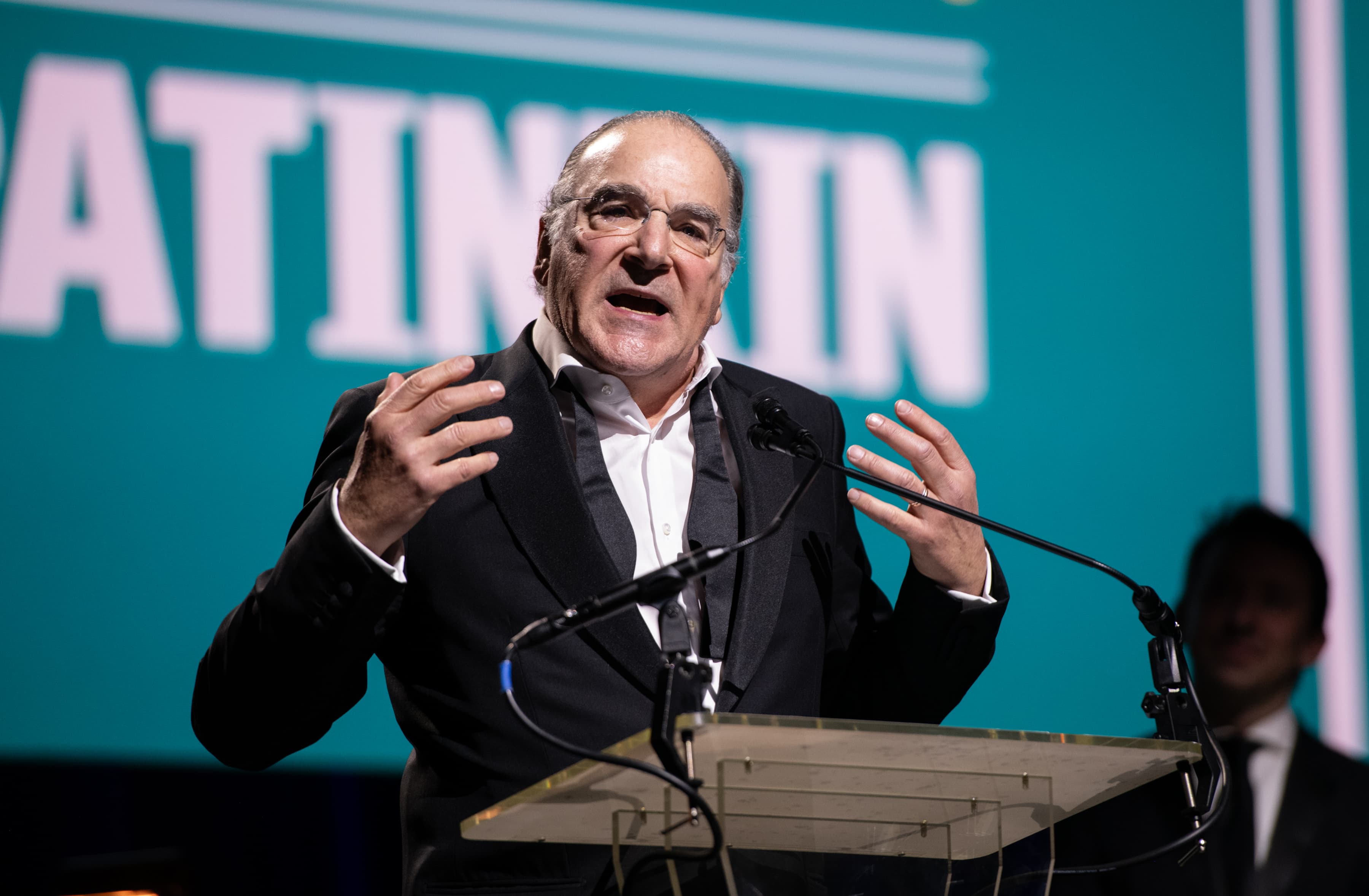

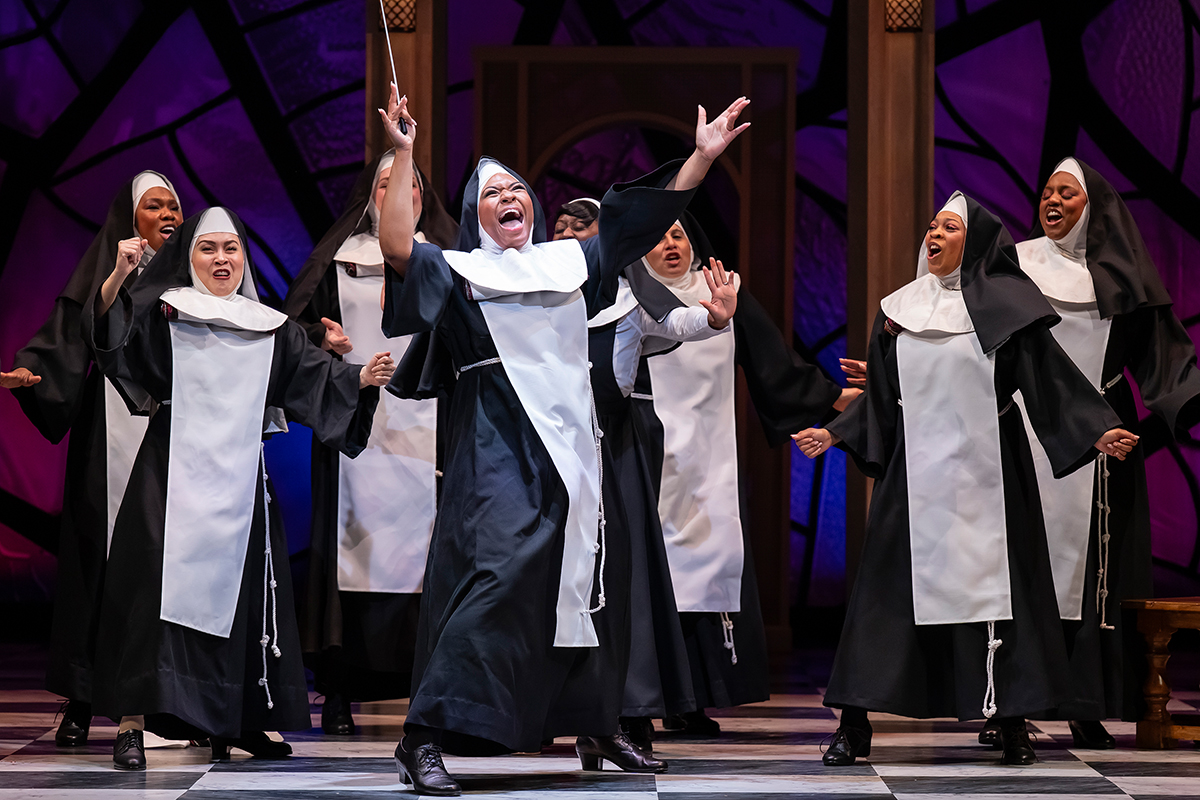













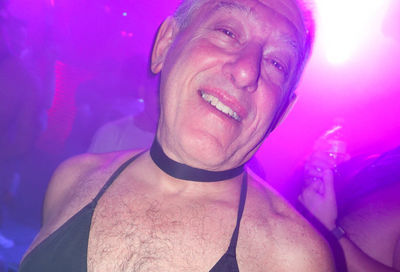
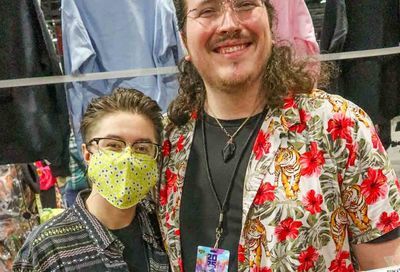
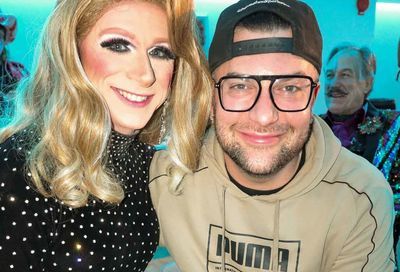
You must be logged in to post a comment.